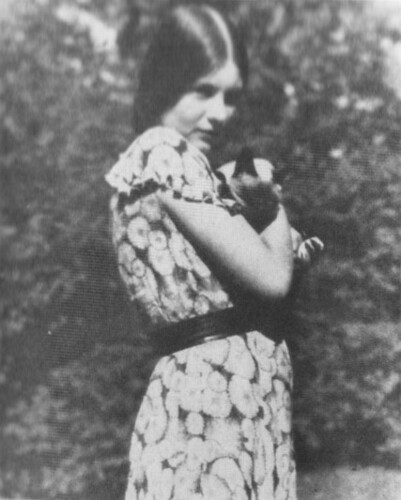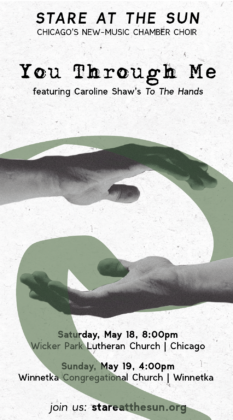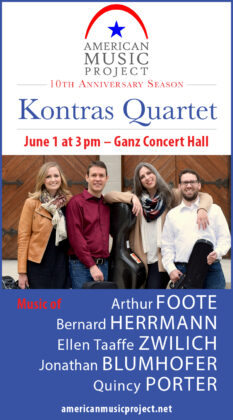Robertson, CSO ignite in Stravinsky’s “Rite of Spring”
You would think that, in an age that has given us gangster rap, reality television and Rod Blagojevich, it would be impossible to be violently jolted by much of anything—let alone a ballet composed in 1912.
Yet the shock waves produced by the Chicago Symphony Orchestra’s full-metal performance of Le Sacre du Printemps Thursday night at Symphony Center, led by David Robertson, proved that Stravinsky’s epoch-making ballet can still pack a seismic wallop.
In this week’s program, the second in the CSO’s month-long tribute to Pierre Boulez, the French conductor is handing off the baton to his younger colleague and longtime IRCAM collaborator. Robertson, music director of the Saint Louis Symphony Orchestra, drew notably energized, first-class playing from the orchestra, keeping up the strong momentum generated from Boulez’s program of Bartok and Ravel last week.
With a century of familiarity, there is a temptation for many to present The Rite of Spring as a kind of souped-up concerto for orchestra, heavy on sonic overkill and brassy blare.
Robertson’s patient, organic direction reminded us that this is, after all, music to be danced. In the introduction to “Adoration of the Earth,” the wind solos, led by David McGill’s evocative bassoon, emerged in all their unsettling strangeness, like half-formed creatures crawling from the mire.
Yet while Robertson brought a lucid grace and Gallic refinement to the score, as in the “Spring Rounds,” there was no shorting of the score’s bleak power or primeval violence, as with the massive weight in the “Dance of the Earth.” This was a cohesive vision of this extraordinary and tortuously complex score, centered not on mere flash and volume, but putting the originality of Stravinsky’s score foremost, and the audacious scoring, rhythmic propulsion and bewildering succession of time signatures emerged with striking clarity. Thursday’s performance culminated in a staggering rendition of the climactic “Sacrificial Dance,” the whirlwind pagan brutality delivered with thrilling sonic fury and unbridled virtuosity by the CSO musicians.

Dedicated “to the memory of an angel,” Alban Berg’s Violin Concerto was written in the wake of the tragic death of 18-year-old Manon Gropius—daughter of architect Walter Gropius and Alma Mahler Gropius— from polio.
While outwardly inspired by Berg’s sorrow at the death of a beloved family friend, the degree of yearning and romantic despair suggest a deeper attachment. As always with Berg, there are other layers within layers, referencing an affair of the composer’s youth, baffling coded numerology, and—it’s hard to avoid thinking—a premonition of Berg’s own early death.
As in his opera Lulu, the concerto weds Berg’s modified serialism to a lyrical yet astringent style. There are stormy moments, yet the prevailing expression is introspective with a suffused romantic sadness, only partially vitiated by the final bars’ appearance of a re-harmonized Bach chorale.

Kyoko Takezawa is making her belated CSO subscription debut at these concerts, and, for the most part, the Japanese violinist proved a skilled and communicative soloist. Takezawa’s tone was rather slender yet she brought an assertive approach to this score, as with her bristling bravura in the opening of the second movement.
Yet in some ways, Takezawa’s performance felt like a work in progress Thursday night. There was a rather plain-spun quality to the opening pages, and the violinist’s literal approach missed some of the inward mystery, along with moments when soloist and conductor didn’t seem entirely in synch. Takezawa’s playing became more focused and expressive as the performance progressed and the radiant finale with its reprise of a Carinthian folk tune and transfigured Bach chorale was sensitively done. Robertson and the CSO provided their soloist with ardent support, though woodwinds and brass could have been more adroitly balanced in the Adagio of the second movement.
The concert led off with Olivier Messiaen’s first published work for orchestra, Les offrandes oubliées (“The forgotten offerings”).
Even at age 22, the French composer’s distinctive style was already manifest in this 13-minute triptych, infused with Messiaen’s deeply felt, idiosyncratic brand of Roman Catholicism. Two contemplative sections representing Jesus on the cross and the promise of salvation flank a violent passage depicting the wages of sin.
Robertson and the CSO provided a richly eloquent performance, bringing a luminous warmth to the long string phrases of the opening section, and delivering the central music with aggressive impact. The spiritual essence of the meditative finale was clear, Robertson spaciously unfolding the music with a glowing tenderness, the dynamics descending to a final, barely audible tendril of violin tone.
The program will be repeated 8 p.m. Friday and Saturday and 7:30 p.m. Tuesday. www.cso.org; 312-294-3000.
Posted in Performances





Posted Mar 04, 2010 at 3:22 pm by richard tribble
Thank you for highlighting the wonderful performance of that short Messiaen work – It was one of the gems of the CSO season. Kudos to the strings.